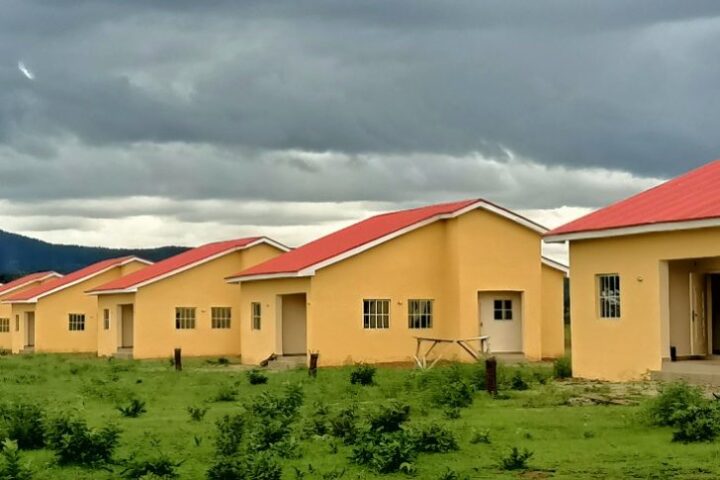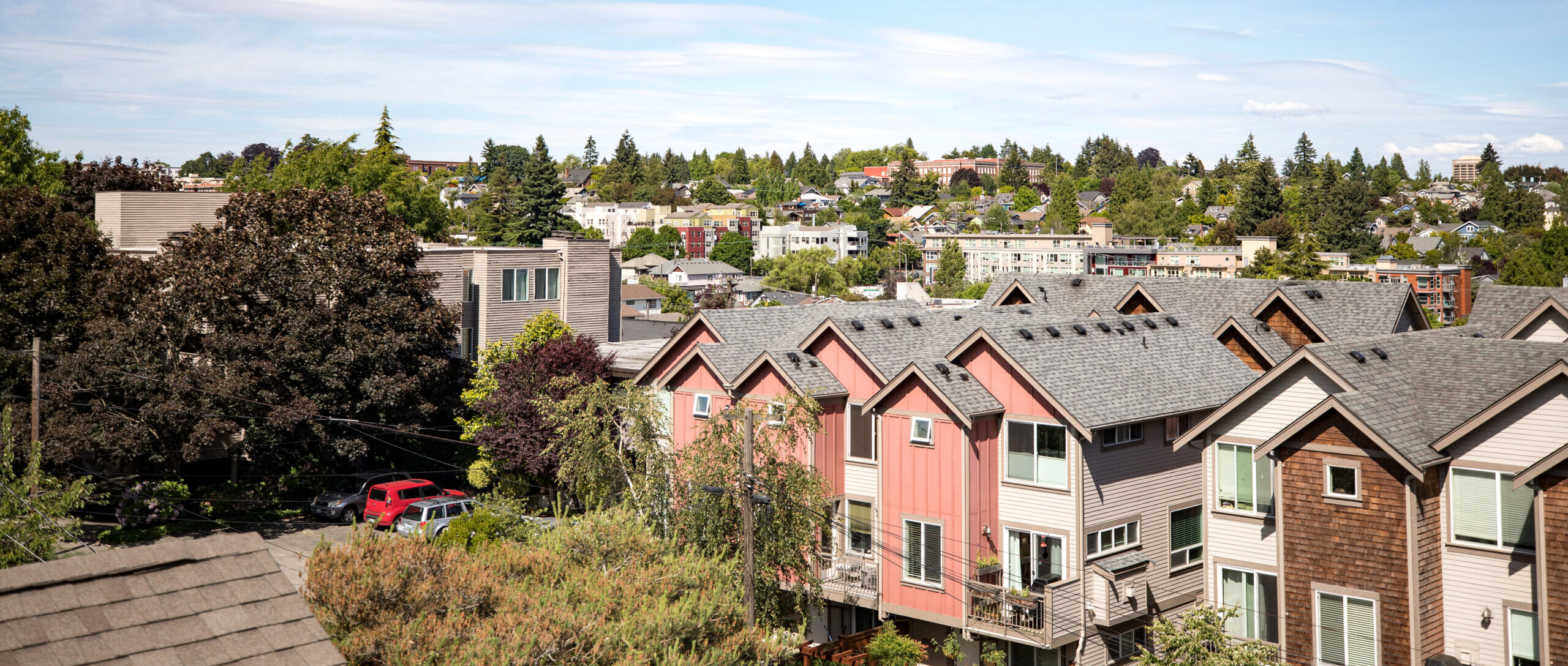If you're buying residential or commercial property in the UK, you'll require to know whether the purchase will be freehold or leasehold. You may have become aware of these terms before, but what do they really mean? This easy guide lays out everything you need to understand about freehold vs. leasehold and how every one impacts how you own your residential or commercial property.

Leasehold vs. freehold FAQs

What is freehold?
Buying a residential or commercial property freehold simply means that you own the building along with the land it stands on. Freehold and leasehold are the two main forms of legally owning residential or commercial property in the UK. Freehold is the regular form of ownership for houses.
What is leasehold?
A leasehold purchase suggests that you own the house/flat/relevant building, but you need to lease the land it bases on from the freeholder. The freeholder owns the land. This is the normal form of ownership for flats.
How do I know if a residential or commercial property is freehold?
To discover if a residential or commercial property is leasehold or freehold you can inspect the Land Registry website. Here, you can search by postcode and look at a copy of the building owner's title. The title is a document that confirms whether the residential or commercial property is freehold or leasehold.
If you currently owned the residential or commercial property and were asked to sign a lease contract during the purchase, then your residential or commercial property is leasehold.
Is freehold better than leasehold?
Freehold purchases are much better than leasehold in regards to overall simplicity and total ownership. Freehold residential or commercial properties tend to cost more in advance to purchase than leasehold, however leasehold residential or commercial properties frequently feature additional costs and legal complications or restrictions.
Leaseholder costs may consist of upkeep fees, yearly service charges, constructing insurance, and ground lease. Restrictions applying to leasehold residential or commercial properties may consist of things like:
- The leaseholder may need to get consent to do deal with the residential or commercial property.
- The freeholder might not permit family pets.
- The leaseholder may not be enabled to sublet the residential or commercial property.
Also, the freeholder can choose to offer a residential or commercial property's title while a leaseholder is residing in the structure. The new owner could then impose added fees, such as a boost to any service fee, with little to no notification. Overall, when it comes to freehold vs. leasehold, owning a freehold residential or commercial property is easier and less restrictive than a leasehold.
Exist benefits to owning a leasehold residential or commercial property?
There can be benefits to owning a leasehold residential or commercial property. These might include having access to common facilities such as a health club or resident lounge within a development. A leasehold residential or commercial property within a development might also provide benefits such as concierge services or covered parking.
If work needs to be done on the residential or commercial property, the freeholder is accountable for arranging it. However, the leaseholder will frequently need to contribute towards the expense of the works.
What are the advantages of purchasing a freehold?

The main benefit of buying a freehold is that you own the land your residential or commercial property rests on. You don't have to pay any surcharges or ground rent. You also do not have to look for consent to make modifications to the residential or commercial property.
Freehold residential or commercial properties are also easier to sell. The closer a lease is to expiring, the harder it is to sell a leasehold residential or commercial property. Mortgage rates also increase if the lease is under 70 years.
You can extend the lease on a residential or commercial property, however at a cost. Depending upon the staying time on the lease, extending can cost 10s of countless pounds. However, this is changing - see our upgrade on the Leasehold and Freehold Reform Act at the bottom of this short article.
Is it worth buying the freehold of my home?
It can be worth buying the freehold of your residential or commercial property if the lease has unfavourable terms - such as couple of remaining years, high service fee, and so on. However, be encouraged that purchasing the freehold on a leasehold residential or commercial property is typically a pricey and time-consuming process.
Is a 999 year lease as excellent as freehold?
Having a 999-year lease is not the like having a freehold, it is simply a long leasehold. It has the very same advantages and drawbacks as a shorter lease, with the exception of not having to fret about the lease running out or requiring a renewal.
Having a 999-year leasehold still wouldn't exempt you from paying any required ground lease and service fee to the present freeholder, for example. The long lease time just eliminates among the main causes for concern regarding this plan.
Are freehold houses worth more than leasehold?
Leasehold residential or commercial properties do tend to be more affordable than freehold residential or commercial properties of the same type, since of the threats attached to leasing. The primary concern being the number of remaining years on the lease. However, this is just a general pattern, not an outright guideline.
Does a freehold indicate you own the land?
If you own the freehold, you own the residential or commercial property and the land it bases on. The title for the residential or commercial property will list you as the freeholder. You will have total ownership over that land up until you select to sell it.

Buying.
Flying freeholds: All your questions responded to
Buying.
What does Share of Freehold mean?
Buying.
What is a service fee? Why do I pay it?
How long does a freehold last?
The freehold on a residential or commercial property lasts up until the owner chooses to sell it. At the point of sale, the freehold then moves to the new owner.
The length of time does a leasehold last?
Leaseholds last for a set variety of years. Standard leasehold lengths are 90 or 120 years. However, leaseholds can last as long as 999 years.
As the length of the lease reduces, so does the value of the residential or commercial property. Short-lease residential or commercial properties can rapidly drop in worth. For instance, a residential or commercial property with a 60-year lease deserves 10 per cent less than one with a 90-year lease.
What takes place when a leasehold goes out?
When a leasehold ends, the ownership of the land and the residential or commercial property reverts to the freeholder. This indicates that the freeholder now owns the residential or commercial property.
It used to be the case that if you have actually resided in a residential or commercial property for more than two years, you deserve to extend the lease by 90 years. Now, thanks to the Leasehold and Freehold Reform Act, this is no longer a requirement. However, you would need to pay for this extension. Extension charges can cost approximately 20 percent of your residential or commercial property's worth. Again, the just recently signed Reform Act aims to make this cheaper.
Can you turn a leasehold into a freehold?
In certain scenarios, you can turn a leasehold into a freehold. Leaseholders of flats can buy the freehold for their residential or commercial property with certain constraints. These include:
- The building needs to consist of a minimum of 2 homes.
- A minimum of 75% of the structure is utilized for property purposes.
- A minimum of 75% of the flats are owned by leaseholders who own long leases of a minimum of 21 years.
- At least half of the leaseholders want to purchase a share of the freehold.
- If there are only 2 flats in the building, both leaseholders should wish to purchase the freehold.
Once a group of leaseholders have purchased the freehold, they can set their own ground rents and service fee. However, they are then accountable for preserving the building.
Can a freeholder refuse to sell the freehold to leaseholders?
Freeholders can not decline to sell the freehold to leaseholders of flats on the residential or commercial property, if they fulfill the listed requirements. It is a legal right for leaseholders to have the option to buy out the freehold if they fulfill these requirements.
What do leaseholders typically dispute with freeholders?
Common disagreements made by leaseholders versus freeholders involve the expense of annual service charges. The HomeOwners Alliance says that 26% of all leaseholders in the UK feel that they are being overcharged by their freeholder.
Similarly, 23% of leaseholders complain that they have an absence of control over how and when significant works are done. 18% experience issues when significant works are carried out, such as extreme sound or interruption.

Freehold vs. leasehold: which is better?
The concern of freehold vs. leasehold is not a simple one. Buying a freehold residential or commercial property is usually simpler and more versatile than a leasehold. However, most flats are leasehold residential or commercial properties.
If you are purchasing a leasehold, you need to examine the length of time is left on the lease. The worth of a leasehold residential or commercial property is connected to the length of its staying lease. The longer left on the lease, the better.
It's also worth examining how much the ground lease and service fee are if buying a leasehold residential or commercial property. Also, check whether you get access to any common centers or other benefits.
If you really do not desire to reside in a leasehold residential or commercial property and you get on well with your neighbours, you may wish to think about buying the freehold outright. Remember that you'll need a minimum of half the other leaseholders on board to do this. Buying a share of freehold is the most common way to turn a leasehold into freehold residential or commercial property.
Recent changes to leaseholds

There's been a significant reform of UK leasehold law on the cards for several years. The very first stage of the Leasehold Reforms (and Ground Rent) Bill entered effect at the end of June 2022. The main headline modification then was that ground rents were eliminated for new residential or commercial properties. This remains good news if you plan to purchase a leasehold residential or commercial property to live in or lease.
The brand-new law likewise implies that if you currently have a leasehold residential or commercial property, the ground lease can not be increased. Once your existing lease term ends, the brand-new agreement must, by law, charge absolutely no ground lease. Additionally, ground lease can no longer be charged on retirement residential or commercial properties.
Update May 2024: Leasehold and Freehold Reform Act becomes law
On 24th May 2024, the Leasehold and Freehold Reform Act ended up being law. While some of the arrangements originally described in the initial costs have been dropped, it has kept a variety of changes that will make it much easier and cheaper for leaseholders to live in, lease, or otherwise handle their residential or commercial property. A few of the main arrangements of the new law consist of:
- Banning brand-new leasehold homes in England and Wales - but not on brand-new flats.
- Making it more affordable and simpler to extend your lease or buy the freehold for existing leaseholders in both homes and flats.
- Increasing the basic lease extension term to 990 years, up from the current 90 years, with ₤ 0 ground lease.
- Removing the requirement for brand-new leaseholders to have actually owned their house or flat for 2 years before these changes apply to them.
- Making purchasing or selling a leasehold residential or commercial property quicker and simpler, with an optimal time and fee for the provision of info to a leaseholder by the freeholder.
- Requiring openness over service charges for leaseholders. I.e.: Freeholders or their management business must reveal clearly and transparently how they charge for all aspects of their service charge fees.
- Replacing structures insurance commissions with a transparent administration cost for handling representatives, landlords and freeholders.
- Extending access to "redress" plans for leaseholders who feel they have actually been a victim of poor practice.
- Scrapping the presumption that leaseholders must pay the freeholders' legal costs when challenging poor practice.
- Granting freehold homeowners on private and blended tenure estates the very same rights of redress as leaseholders.
- Building on the legislation in the Building Safety Act 2022, that makes sure freeholders and developers are unable to leave their liabilities to money structure remediation work.
- Allowing leaseholders in buildings with up to 50% non-residential floorspace to purchase their freehold or take over its management. This is a boost from the current 25% threshold.
These legal rights and defenses represent an ongoing effort to make leasehold residential or commercial properties less expensive and complicated to own. This is excellent news for anyone wanting to buy this kind of residential or commercial property now or in the coming years. The HomeOwners Alliance has further extensive information about the primary subjects of argument for leasehold law modifications, so take an appearance if you wish to discover out more.

If you need more suggestions on legal terms and concerns around residential or commercial property purchases, our guides area has everything you require. We have guides on conveyancing, transfer of equity, ground lease and much more. We hope that this freehold vs leasehold guide offers you the ideal starting understanding to help select the best residential or commercial property for your requirements.
HomeViews is the only independent review platform for residential developments in the UK. Prospective buyers and tenants use it to make a notified decision on where to live based upon insights from thoroughly verified resident reviews. Part of Rightmove considering that February 2024, we're working with developers, house builders, operators, housing associations and the Government to provide locals a voice, recognise high performers and to help improve requirements across the market.



